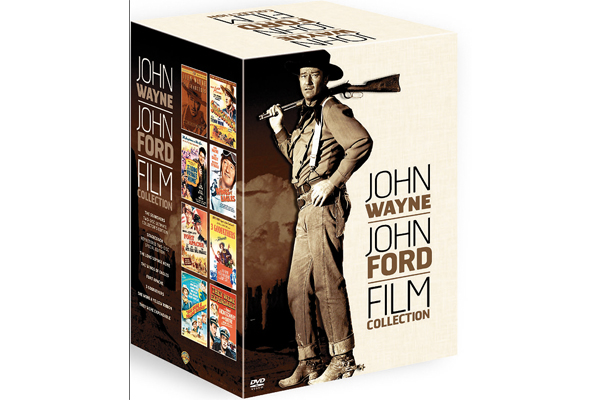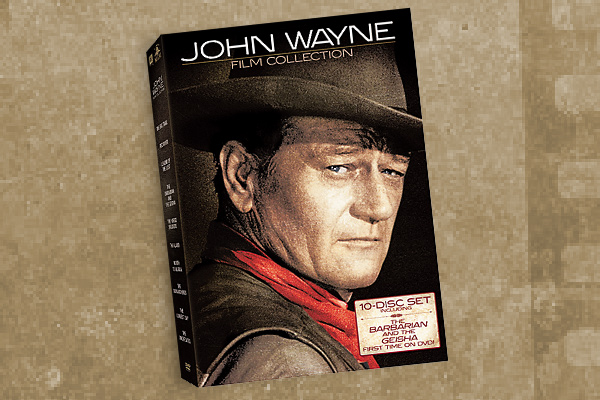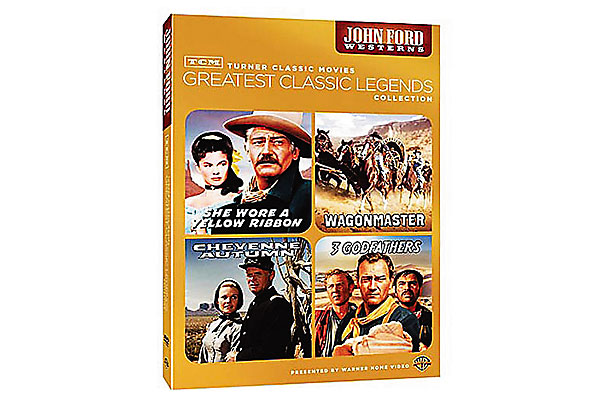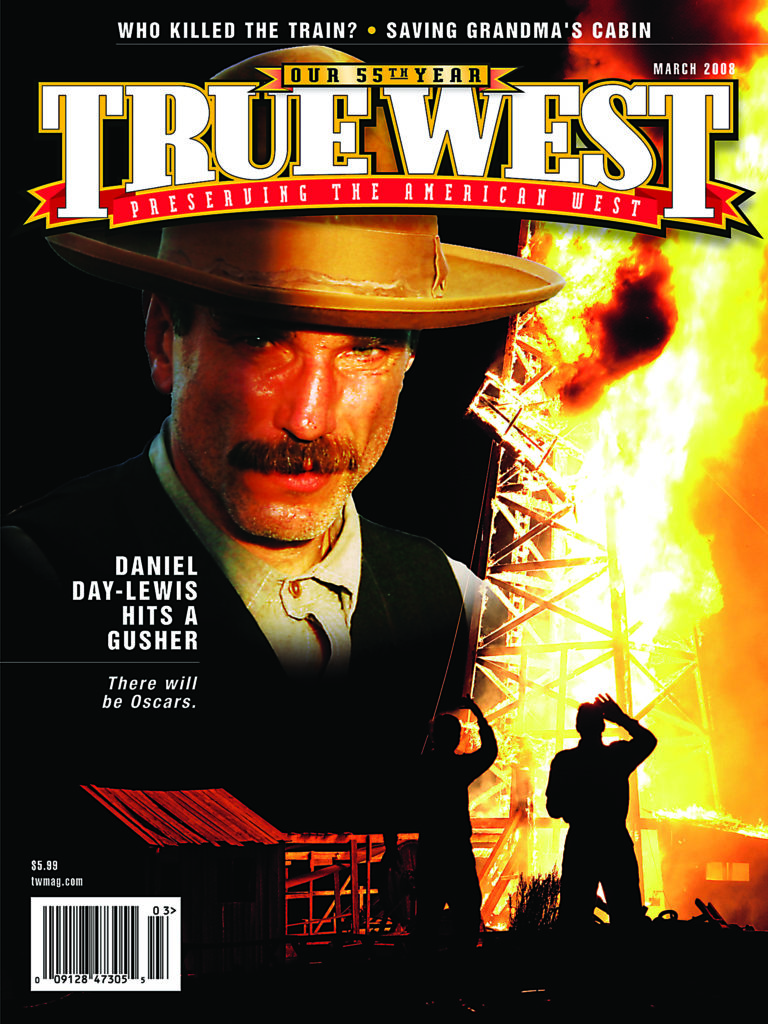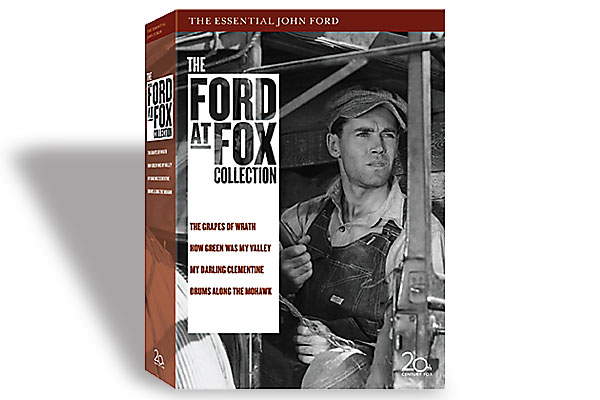
(Fox Home Video; $49.98.) Those who look hungrily at the massive Ford at Fox DVD box set, which lists at $299, but are hesitant to pony up that kind of cash for the films, the book of photographs and the other extras, you may want to consider buying the best of the splinter collections: The Essential John Ford.
This six-disc box can be picked up here and there for around $25, and it is indispensable for those who love this particular handful of John Ford’s very best movies. The set also contains a special picture which was not directed by Ford and which is not included in the larger collection.
Fox has added, for purposes of comparison, the movie that inspired John Ford’s My Darling Clementine (1946), Frontier Marshal, which was directed by Allen Dwan and is a virtual sketchbook version of Clementine.
The movie also claims the honor of being the first film to portray Wyatt Earp by name: Randolph Scott plays Earp, Cesar Romero is Doc Holliday. While this film is nowhere near as elegant as Clementine, it’s still a solid piece of work, one which belongs in that handful of ambitious adult Westerns that were all released in 1939, including Jesse James, Destry Rides Again and Stagecoach.
This box set offers two cuts of Clementine (Ford’s earlier version and producer Darryl F. Zanuck’s re-edit), and presents a handful of Ford’s greatest and most beloved non-Western films, including Drums Along the Mohawk (1939), Oscar winners The Grapes of Wrath (1940) and How Green Was My Valley (1941).
But beside these five classics and several wartime documentaries Ford made (The Battle of Midway and others), one of the best features in the collection is the documentary Becoming John Ford. It’s directed by Nick Redman, who directed an earlier Ford doc about The Searchers, called A Turning of the Earth.
In the new film, directors Walter Hill and Ron Shelton voice passages of text by Ford and Zanuck, and there’s music by Christopher Caliendo, who rescored Sam Peckinpah’s Major Dundee a few years ago. What’s best about this group of scholars and players (including Peter Fonda) who comment on Ford and his history at Fox is that they are not altogether determined to paint a glossy portrait of Ford.
“A crude, ugly man” and “an eccentric nut case” are just a few of the phrases they use to describe Ford. They are equally quick to point out how brilliantly talented he was. It’s a smart view of Ford, warts and all, by people who know his work and life in great detail.
The documentary gets thick with sentiment toward the end, as such films so often do, but it’s also loaded with great clips, photographs and anecdotes. Since the film deals with the early career of Ford in the silent era through his major achievements before, during and immediately after WWII, it’s a comprehensive view of the man.
Of course, Ford quit working for Fox when he formed his own company in the mid-1940s. All but one of his renowned pictures with John Wayne were made after this period, but it’s more than fair to say that the decade from 1935-46, before he began the cavalry trilogy-Ford Apache, Rio Grande and She Wore A Yellow Ribbon-was a golden age for Ford and for American movies.
Because of the quality of the films in the package, the many extras and the documentary, Ford at Fox: The Essential John Ford is pound for pound the best collection to come out of the entire holiday season of 2007.


